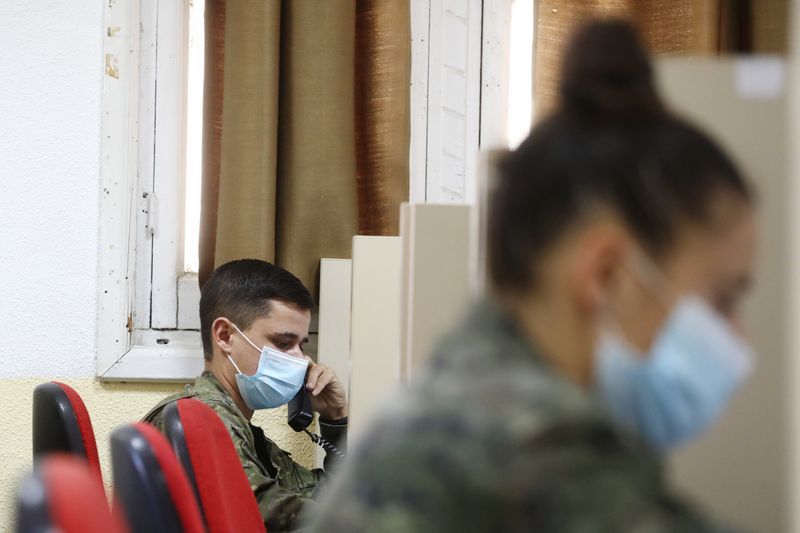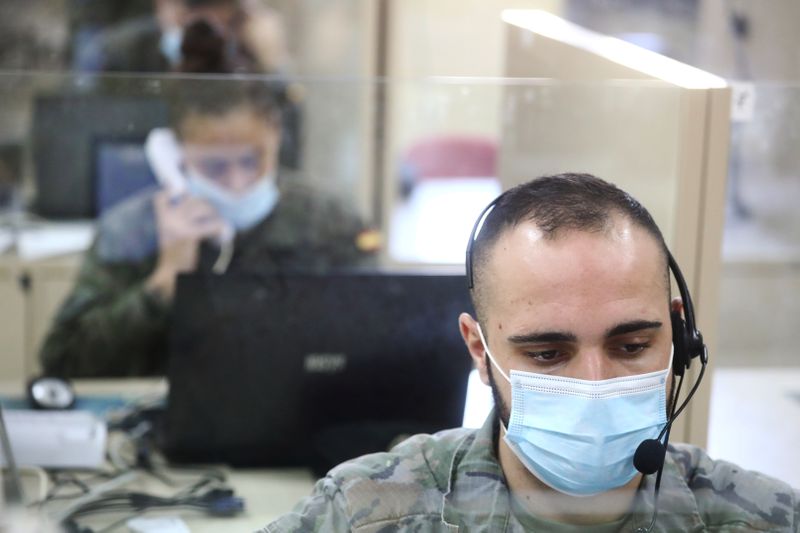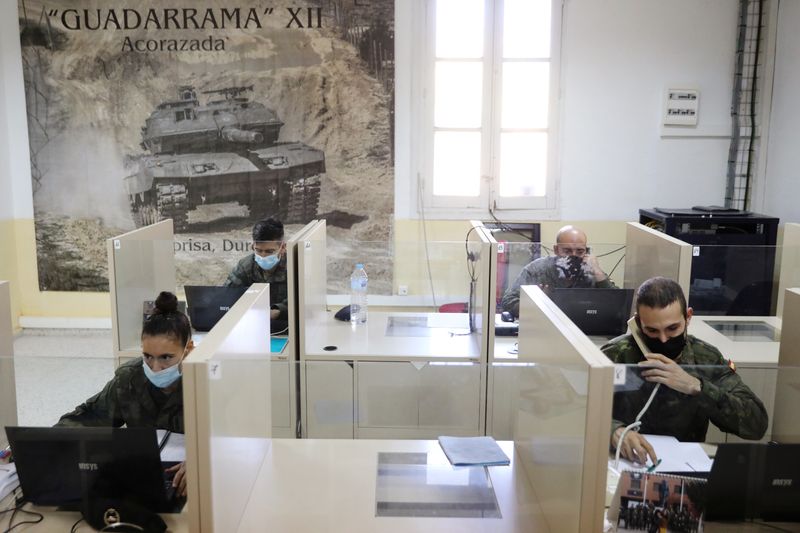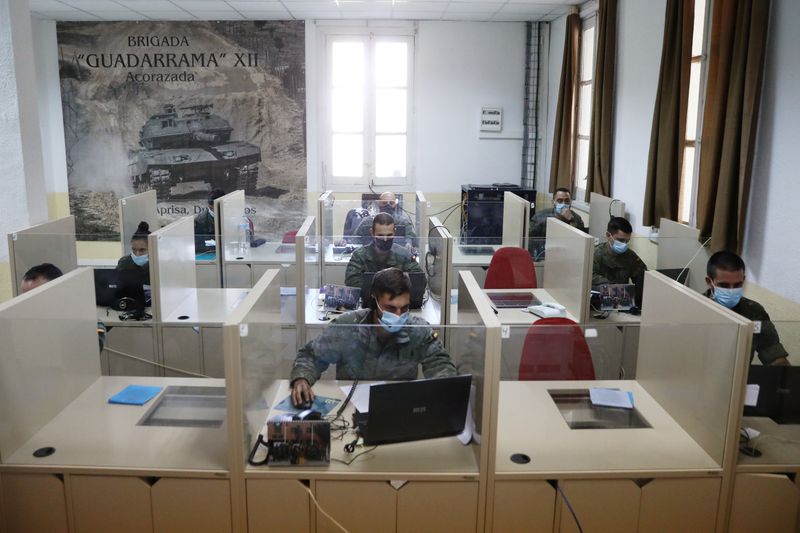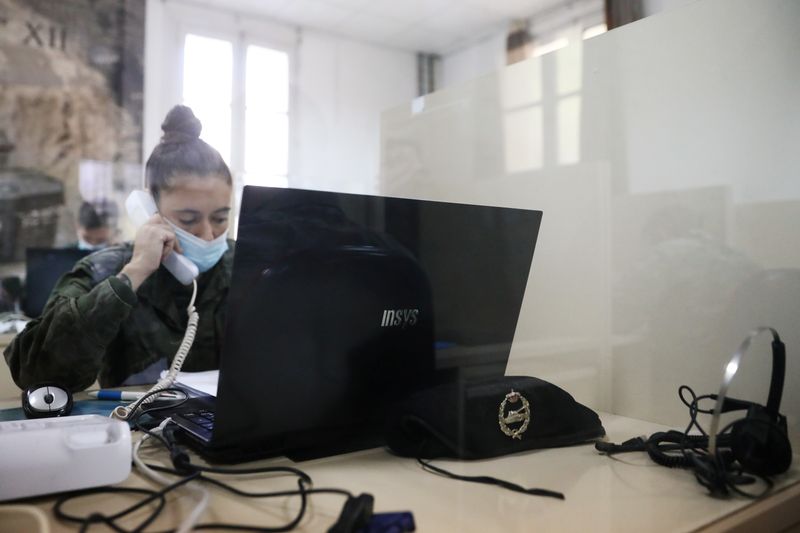MADRID (Reuters) – Various European countries have used their armies for logistical support in tackling COVID-19, but hard-hit Spain is now bringing military discipline to a process that health experts say is key in stemming the spread of the pandemic: contact tracing.
At five army bases in Madrid, 150 volunteer soldiers spend their days calling people who have been diagnosed with COVID-19, mapping recent social interactions, and asking those potentially infected to stay at home.
“We try to impress upon them the idea that their help is vital to bringing an end to the chaos we are living through this year as soon as possible,” Lt. Hector Sanchez said at the Goloso military base on the outskirts of Madrid, where he is in charge of 30 tracers.
“We can’t check whether people are doing their bit and isolating. We want to think so, but obviously we can’t control people,” he said.
With 741 COVID-19 infections per 100,000 people, Madrid is the epicentre of one of the worst national caseloads in western Europe. Spain has reported nearly 836,000 cumulative infections and 32,562 deaths since the start of the pandemic in March.
Of the 2,000 troops the national government has offered to bolster local tracing efforts, 1,783 have been assigned across 15 of Spain’s 17 regions, Health Minister Salvador Illa told a news conference on Thursday.
Spain has performed more than 10 million swab tests, but public health experts say testing alone is not enough, and emphasise the importance of contact tracing, a strategy used to interrupt the transmission of infectious diseases for decades.
Nationally, an average of three contacts is being identified for every person who tests positive, the Madrid-based Carlos III Institute of Health says.
It is difficult to identify the origin of an outbreak in a populous area like Madrid, Sanchez said, and one infected person could infect two or three more, so his team had to move fast.
“Our job is to prevent it spreading to three more people, because then it is a never-ending chain.”
(Reporting by Miguel Gutierrez and Isla Binnie, editing by Andrei Khalip and Gareth Jones)

